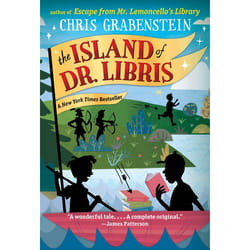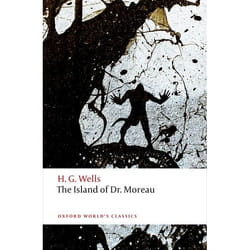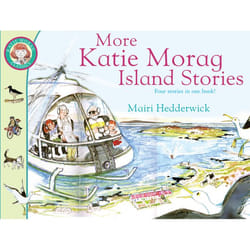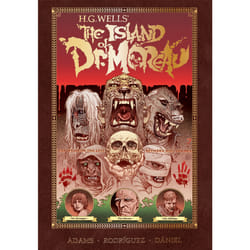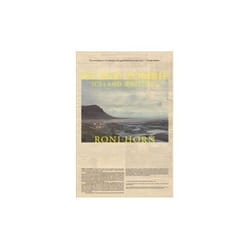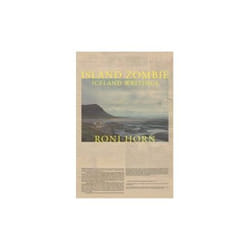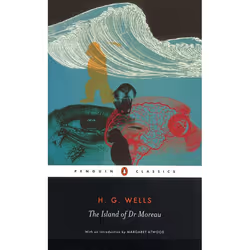
ISBN The Island of Dr. Moreau
ISBN The Island of Dr. Moreau, Classics, English, Paperback, 176 pages
Similar Products
Product Information
The Island of Dr. Moreau
Adrift in a dinghy, Edward Prendick, the single survivor from the good ship Lady Vain, is rescued by a vessel carrying an unusual cargo—a menagerie of savage animals. Nursed to recovery by their keeper Montgomery, who gives him dark medicine that tastes of blood, Prendick soon finds himself stranded upon an uncharted island in the Pacific with his rescuer and the beasts. There, he meets the sinister Dr. Moreau—a brilliant scientist whose notorious experiments in vivisection have caused him to abandon the civilized world. It soon becomes clear that he has continued to develop these experiments with truly horrific results.
The edition includes a newly established text, a full biographical essay on Wells, a list of further reading, and detailed note. Margaret Atwood’s introduction explores the social and scientific relevance of this influential work.
For more than seventy years, Penguin has been the leading publisher of classic literature in the English-speaking world. With more than 1,700 titles, Penguin Classics represents a global bookshelf of the best works throughout history and across genres and disciplines. Readers trust the series to provide authoritative texts enhanced by introductions and notes by distinguished scholars and contemporary authors, as well as up-to-date translations by award-winning translators.
About author(s)
H. G. Wells was born Herbert George in Bromley, Kent, England, on September 21, 1866. His father was a professional cricketer and sometimes shopkeeper, his mother a former lady’s maid. Although “Bertie” left school at fourteen to become a draper’s apprentice (a life he detested), he later won a scholarship to the Normal School of Science in London, where he studied with the famous Thomas Henry Huxley. He began to sell articles and short stories regularly in 1893. In 1895, his immediately successful novel rescued him from a life of penury on a schoolteacher’s salary. His other “scientific romances”—The Island of Dr. Moreau (1896), The Invisible Man (1897), The War of the Worlds (1898), The First Men in the Moon (1901), and The War in the Air (1908)—won him the distinction as the father of science fiction. Henry James saw in Wells the most gifted writer of the age, but Wells, having coined the phrase “the war that will end war” to describe World War I, became increasingly disillusioned and focused his attention on educating mankind with his bestselling Outline of History (1920) and his later utopian works. Living until 1946, Wells witnessed a world more terrible than any of his imaginative visions, and he bitterly observed: “Reality has taken a leaf from my book and set itself to supercede me.”
Customer Reviews
Share your opinion on the product or read reviews from other members.



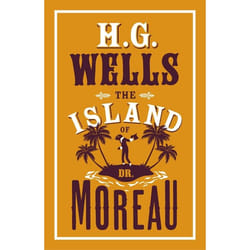
![The Island Of Dr Moreau Blu-Ray [2014]](https://cdn.magicprices.co.uk/250_5037899056325-the-island-of-dr-moreau-blu-ray-2014-1.jpg)
